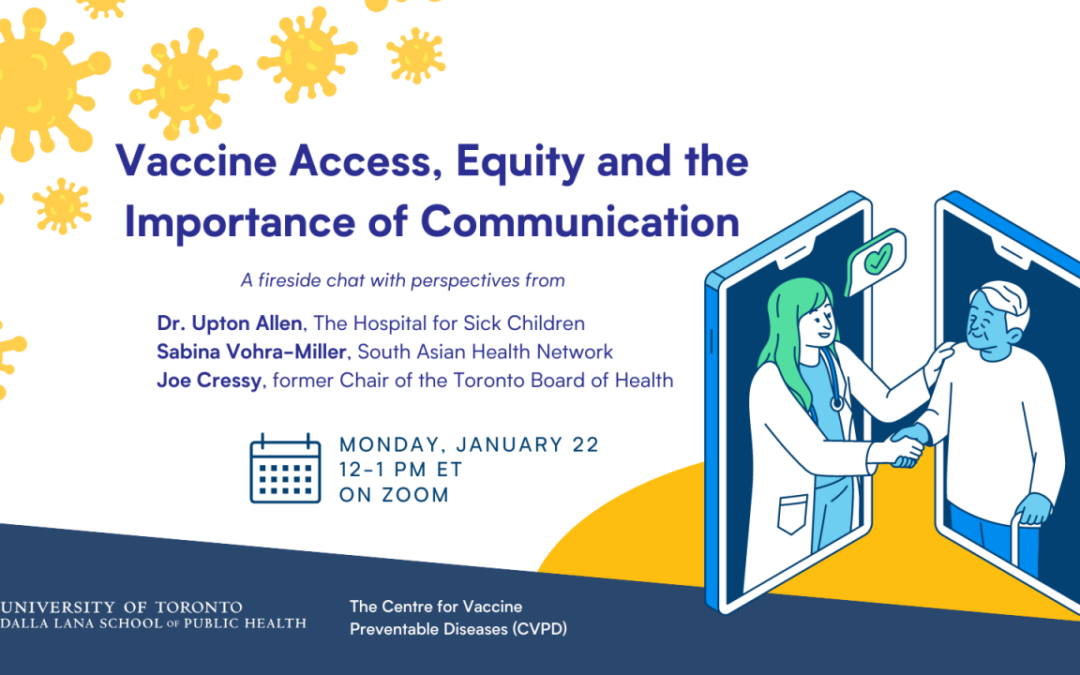

Understanding the role of vaccine delivery on humoral response
EPIC member Jen Gommerman hosts fellow EPIC member Aereas Aung as part of the Department of Immunology’s Easton Seminar Series.
What you need to know about the three fall vaccines, according to U of T experts
As cold and flu season approaches, Canadians are facing respiratory syncytial virus (RSV), an increase in COVID-19 activity, and influenza — but also have new options to protect their health. To learn more, we spoke with Shelly Bolotin, director of the Centre for Vaccine Preventable Diseases, Shaun Morris, a pediatric infectious disease physician at the Hospital for Sick Children, and Allison McGeer, an infectious disease specialist at Toronto’s Sinai Health.

Member Spotlight: Shelly Bolotin
For this member spotlight, we welcome Shelly Bolotin, an associate professor at the Dalla Lana School of Public Health and in the department of laboratory medicine and pathobiology at the University of Toronto’s Temerty Faculty of Medicine. Shelly is also a scientist a Public Health Ontario and the director of the Centre for Vaccine Preventable Diseases, which aims to catalyze cutting-edge research and education that maximizes the health benefits of immunization for everyone.

On the path to malaria elimination, EPIC researchers lead with innovations designed for impact
According to the World Health Organization’s World Malaria Report 2022, 247 million people fell ill with malaria in 2021. In the same year, there were an estimated 619,000 deaths due to the disease, with three out of four deaths in children aged under five. With the right prevention tools and treatments, the WHO’s ambitious targets of reducing global malaria incidence and mortality rates by at least 90% by 2030 can become reality and accelerate progress towards eradication. Getting there requires innovations that have been purposely designed with implementation and impact in mind. Through their work on new diagnostics, vaccines and treatments, EPIC members are doing just that.

